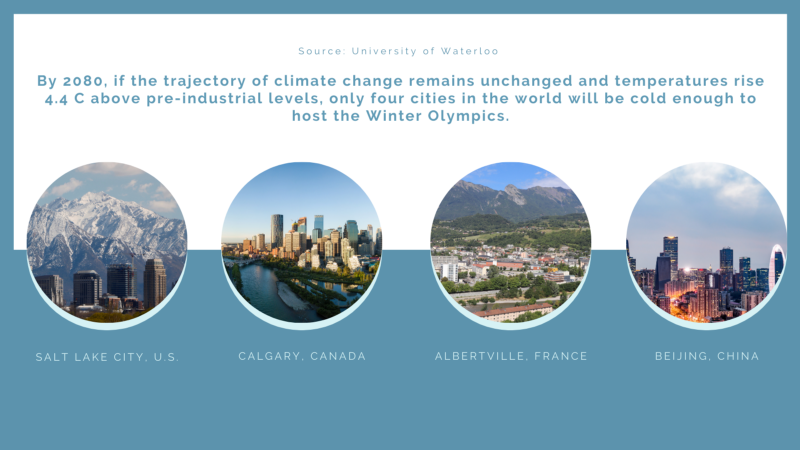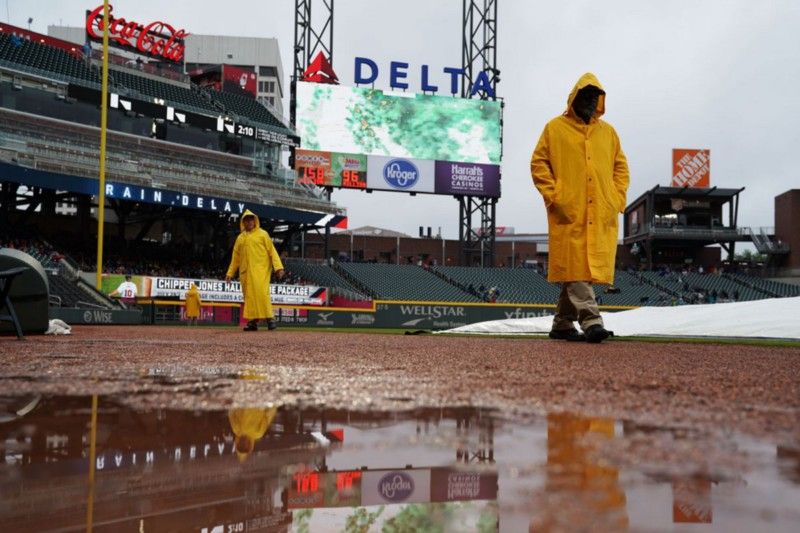Why Climate Data Matters for the Global Music and Sports Industries

One of the most substantial and overlooked categories of external risk that businesses large and small currently face is climate risk.
It is estimated that 70% of businesses globally have some financial exposure to the weather. Businesses in the global music industry, professional sports leagues and others that derive much of their revenue from outdoor events or live entertainment certainly fall into that category. Considerations about how to plan outdoor events around weather have always been necessary. Professional sports leagues rely on accurate, up to the minute forecasts to make preparations in advance and to map out contingencies in the event of inclement weather. The same is true for outdoor event and concert planners. They need good forecasts to find the right time of year to plan larger festivals (ex. When is it least likely to rain in a certain location) and to keep attendees and artists safe in the event of a major storm. For example, over seventy people were injured as the result of a dangerous lightning storm at a popular music festival headlined a few years back by the Red Hot Chili Peppers and Black Sabbath in Germany.
Weather has always been an external factor that organizations have had to consider when planning events that are exposed to the elements. But as regions throughout the world deal with conditions that are increasingly more volatile and severe due to the impacts of an increasingly changing climate, many businesses that are exposed to weather risk are asking themselves how do they plan for the future? Winters in many parts of the world are becoming colder and harsher and summers are becoming increasingly hotter and wetter.
According to the World Meteorological Organization, June of 2019 was one of the hottest summers on record. Scorching summer temperatures can be dangerous for both spectators and talent at live events. The U.S. Tennis Association imposed special rules allowing players to take breaks in between sets after extremely humid conditions resulted in a fan collapsing in the stands and several players needing medical assistance.
The increasing frequency of summers that are warmer and wetter was a point of concern for the organizers of the summer Olympics which were slated originally to be held last year. Organizers for the upcoming World Cup, scheduled to be held in Qatar in 2022 where summer temperatures have been recorded as high as an astonishing 123F, were forced to take preemptive action for the safety of players and fans alike and move the festivities to the winter.
Some believe that a winter World Cup may become the new normal, as rising summer temperatures around the world make conditions unsuitable for live outdoor events. Concerns about extreme weather impacting sports and other live, outdoor events are not going away. They are only going to become a greater concern over time.
A study conducted in 2018 by researchers at the University of Waterloo in Canada found that by 2050, “less than half of the 21 cities that have hosted the Winter Olympics will be cold enough to host the games again.” By 2080, if the trajectory of climate change remains unchanged and temperatures rise 4.4 C above pre-industrial levels, that will shrink to just four cities in the world: Calgary in Canada, Beijing, Albertville in France and Salt Lake City in the U.S.

The impacts of climate change that we are already experiencing and that will only worsen with time cannot be ignored by businesses and organizations that are exposed to the financial and physical impacts of climate risk. These organizations will need to invest in proactive adaptation and resilience measures to allow for operations to continue with some semblance of normalcy.
One of the most common questions people have about dClimate, the world’s first open and decentralized marketplace for climate data, was why do people need accurate and secure climate data, forecasts and models. Isn’t the weather app on our phones sufficient? Who really uses this information anyways?
While the weather app on our phones might be handy for helping us as individuals make daily preparations in our lives, climate data and forecasts can do much more than help us understand the forecast a few days out. This critical information about our planet and its complex ecosystems can help businesses, organizations and individuals plan for the events described above in advance and build institutional resilience for the future.

As extreme weather events become more frequent and intense, the need for accurate and secure climate data will only grow. Outdoor event planners and professional sports leagues that have revenues that are directly impacted by and financially exposed to the elements will need this data to keep their employees and stakeholders safe. Concert planners will need climate data to plan future events and accurate forecasts to keep their talent and fans safe during performances. Professional sports leagues like Major League Baseball and the NFL will need climate data to inform the scheduling for each of their teams. It is quite possible that in the future, more and more teams will rely on stadiums that are fully indoors or that utilize retractable roofs or built-in cooling systems.
All businesses and organizations that have some exposure to climate risk will need this information to optimize their operations, plan contingencies, and make their business models and revenues resilient against volatile and adverse weather. They will need platforms like dClimate to access not just the data they need, but data that is also accessible, easily interpretable, and independently validated as reliable.
We have seen just in the past year what the consequences are of failing to prepare for risks that seem far away or impossible, but that once realized, can be financially catastrophic for even the world’s largest and most recognizable and seemingly indestructible companies.
Billion dollar brands which collectively employ tens of thousands of workers, from multi-million dollar recording artists and star athletes to maintenance workers and engineers suddenly saw ticket sales plummet to zero and sponsors flee seemingly overnight due to the impacts of COVID-19. Many of these businesses were not prepared financially for the prospect of a global pandemic, and they are not financially prepared for the prospect of mass cancellations due to extreme weather events and conditions.
Businesses need climate data to prepare as best they can to operate in the uncertain world we live in. While it is impossible to predict when the next global health emergency will be, there is data and models and forecasts that can help businesses prepare for the next wave of heat emergencies, major storms and other categories of adverse and severe weather that they might face.
Climate risk remains an overlooked and in some cases neglected category of external risk that many businesses and organizations are exposed to, but have failed to actively address or build resilience against. In a not so distant reality where Canada is not cold enough to host the Winter Olympics and where summer sporting events need to be held indoors due to extreme heat, the future of live concerts and sporting events that many of us enjoy will depend on how effectively these impacted organizations utilize data to make preparations and build lasting adaptation strategies for a changing world.
About dClimate:
dClimate is the world’s first transparent, decentralized marketplace where climate data, forecasts, and models are standardized, monetized, and distributed. The marketplace connects data publishers directly with data consumers, making climate data more accessible and reliable. When data providers share data and forecasts with the market it is automatically scored for reliability, which helps consumers to shop for information. In exchange, dClimate creates a simple, direct-to-consumer distribution mechanism to monetize their work.
If any of this interests you, and want to learn more about the decentralized and open climate data ecosystem we are building:

